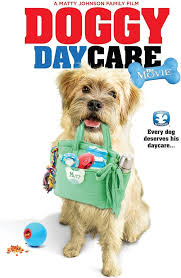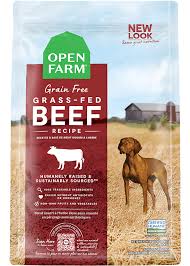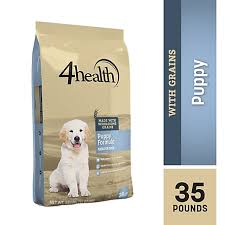The Delightful Combination: Dogs and Peanut Butter
Peanut butter is a beloved treat for many, including our furry friends – dogs! The creamy texture and nutty flavor of peanut butter make it a favorite among canines, often causing tails to wag in excitement at the mere mention of it.
But is peanut butter safe for dogs? In moderation, yes! Peanut butter can be a tasty and nutritious snack for your canine companion. It is a good source of protein, healthy fats, vitamins, and minerals. However, it’s essential to choose unsalted and unsweetened varieties to avoid any potential harm from added ingredients like xylitol, which can be toxic to dogs.
Many dog owners use peanut butter as a way to administer medication – simply hiding a pill in a spoonful of this sticky treat can make the medicine go down much easier for your pup.
When giving your dog peanut butter as a treat, be mindful of portion sizes. While peanut butter is generally safe for dogs, it is high in fat and calories. Too much peanut butter can lead to weight gain and other health issues. As with any treat, moderation is key.
Next time you want to indulge your furry friend or use peanut butter as a training tool, remember that this popular spread can bring joy to both you and your dog. Just be sure to choose a dog-friendly variety and enjoy those happy tail wags!
9 Essential Tips for Safely Giving Peanut Butter to Your Dog
- Choose natural peanut butter without xylitol, which is toxic to dogs.
- Give peanut butter in moderation as it is high in fat and calories.
- Check for allergies before giving peanut butter to your dog.
- Avoid peanut butter with added sugar or salt.
- Use unsalted and unsweetened peanut butter for your dog.
- Consider stuffing a Kong toy with peanut butter for mental stimulation.
- Monitor your dog while eating peanut butter to prevent choking hazards.
- Refrigerate opened jars of peanut butter to maintain freshness.
- Consult your veterinarian if you have any concerns about feeding your dog peanut butter.
Choose natural peanut butter without xylitol, which is toxic to dogs.
When selecting peanut butter for your dog, opt for natural varieties without xylitol, a substance that is toxic to dogs. Xylitol can be harmful to your furry friend, so it’s crucial to read the labels carefully and ensure that the peanut butter you choose is free from this dangerous ingredient. By making this simple yet important choice, you can safely treat your dog to a delicious snack without any risks to their health.
Give peanut butter in moderation as it is high in fat and calories.
It’s important to give your dog peanut butter in moderation as it is high in fat and calories. While peanut butter can be a tasty and nutritious treat for your furry friend, overindulgence can lead to weight gain and other health issues. By offering peanut butter in controlled portions, you can ensure that your dog enjoys this delicious snack without compromising their well-being. Remember, moderation is key when it comes to sharing this popular treat with your canine companion.
Check for allergies before giving peanut butter to your dog.
It is crucial to check for allergies before giving peanut butter to your dog. Just like humans, dogs can have allergic reactions to certain foods, including peanuts. Before introducing peanut butter into your dog’s diet, it’s recommended to conduct a small allergy test by offering a tiny amount and observing for any adverse reactions such as itching, swelling, or digestive issues. Your pet’s well-being is paramount, so always prioritize their health and safety when introducing new treats.
Avoid peanut butter with added sugar or salt.
When choosing peanut butter as a treat for your dog, it’s important to opt for varieties that do not contain added sugar or salt. While dogs can enjoy the natural goodness of peanut butter, added sugars and salts can be harmful to their health. By selecting unsweetened and unsalted peanut butter, you can ensure that your canine companion enjoys a safe and healthy snack without any unnecessary additives that may pose risks to their well-being.
Use unsalted and unsweetened peanut butter for your dog.
When offering peanut butter to your dog, it is crucial to opt for unsalted and unsweetened varieties. These types of peanut butter are safer for your canine companion as they do not contain harmful additives like salt or sugar. Choosing unsalted and unsweetened peanut butter ensures that your dog can enjoy this treat without any potential risks to their health, making it a wholesome and delicious option for them to savor in moderation.
Consider stuffing a Kong toy with peanut butter for mental stimulation.
Consider stuffing a Kong toy with peanut butter for mental stimulation. This simple yet effective tip can provide hours of entertainment for your dog as they work to lick out the tasty treat from the toy. Not only does it engage their mind and keep them occupied, but it also offers a delicious reward that can make playtime even more enjoyable. Just be sure to use dog-safe peanut butter and monitor your pet while they play with the stuffed toy for a safe and satisfying experience.
Monitor your dog while eating peanut butter to prevent choking hazards.
It is important to monitor your dog while they are enjoying peanut butter to prevent any choking hazards. Dogs, especially those who get excited about their favorite treat, may try to gobble down peanut butter quickly without properly chewing. By keeping a close eye on your furry friend while they indulge in peanut butter, you can ensure their safety and intervene if necessary to prevent any potential choking incidents. Remember, a little extra caution goes a long way in keeping your dog happy and healthy during treat time.
Refrigerate opened jars of peanut butter to maintain freshness.
To maintain the freshness of opened jars of peanut butter for your dog, consider refrigerating them. Refrigeration can help extend the shelf life of the peanut butter and prevent it from going rancid. This simple tip ensures that your furry friend can continue to enjoy their favorite treat without compromising on taste or quality. By storing opened jars of peanut butter in the refrigerator, you can keep this tasty snack fresh and ready for your pup’s next delicious indulgence.
Consult your veterinarian if you have any concerns about feeding your dog peanut butter.
It is always advisable to consult your veterinarian if you have any concerns about feeding your dog peanut butter. Your vet can provide personalized advice based on your dog’s specific health needs and dietary requirements. They can also offer guidance on portion sizes, frequency of treats, and any potential allergies or sensitivities your dog may have. By seeking professional input, you can ensure that you are making informed decisions that prioritize your dog’s well-being and health when it comes to incorporating peanut butter into their diet.




